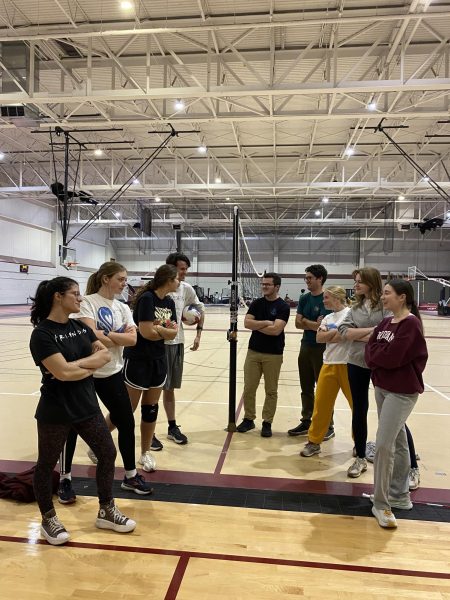Student Athlete Column: Analyzing our Competitions Will Make Us Better Athletes
In track, it seems commonplace that the number one goal when training is to set the runner up for the “Perfect Race.” This is the race, or sequence of races, where everything clicks. This is when all the hard work that the athlete has put in, from the big things, like workouts, and the little things, like consistently getting enough sleep, all pay off. It is usually never an easy road to this point. Even the most experienced athletes make mistakes during competition and have bad days. However, I argue that by using a system to analyze our athletic performances, we can learn from our mistakes faster and become “better” more efficiently.
This analysis system is a method I started using throughout my senior year of high school. My coach, coach Dupe, would send us a worksheet to complete after every competition. In this worksheet, we were asked to assess three components of our race day routine: pre-race, mid-race and post-race.
For the pre-race portion, we were to analyze how well-prepared we were for the competition that day. If we didn’t prepare ourselves well by not sleeping or hydrating enough, that could explain a dip in our performance. On the flip side, if we did all of the little things correctly in the week leading up to the race, that could explain why we PR’d.
The mid-race portion asked us to think about how well we competed, both mentally and physically. Thinking about how mentally or physically tough, or not tough, we were during the race allows us to determine what aspects of the race led to our successes or shortcomings. Additionally, it asked us if we thought about the team during the race, which is vastly important. At the end of the day, track is a team sport, where a team’s success is made up of all the combined victories of each teammate. By asking if we were thinking about the team during the race, it allowed us to reflect on whether we were running for ourselves or our team.
Lastly, the post-race portion not only asked us if we properly recovered from the race but about the race as a whole, with the most important question asking if it “was an honest effort.” In other words, did we give our absolute best and leave it all on the course, or did we settle for what was comfortable?
I think that coach Dupe’s system of post-race analysis is not only genius but also something that all athletes could benefit from. It can be easy to settle into bad habits and make them the “norm.” However, by being honest with yourself by confronting these bad habits head-on, it becomes glaringly obvious what needs to be fixed to reach your next goal. Consider it maintenance work: sharpening your perfections and slowly diminishing your errors until you’re ultimately met with the “Perfect Race.”










































































































































































































